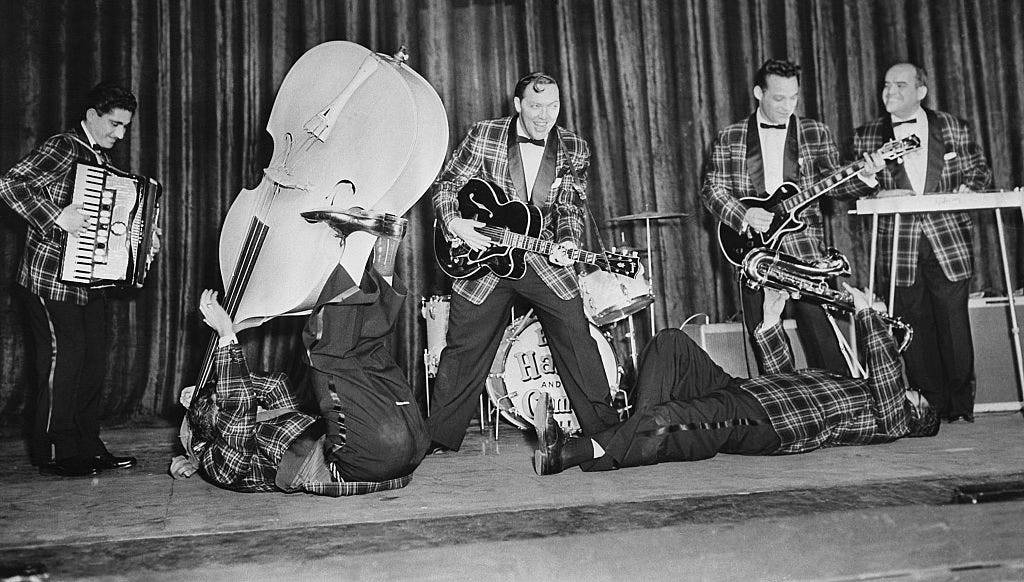TLP Weekend Edition (August 17-18, 2024)
What we're reading, watching, and listening to this weekend.

📚 Quantum Drama: From the Bohr-Einstein Debate to the Riddle of Entanglement, by Jim Baggott and John L. Heilbron. So, um, what does quantum mechanics really mean at the fundamental level? What’s going on with these mysterious wave-particle thingies? Doesn’t matter said Niels Bohr, it works (shut up and calculate!) and that’s all we need to know. Einstein disagreed and we’re still arguing about it to this day. Baggott is my favorite science writer about physics and this one is a corker. Hold on to your popcorn!
📖 “Monumental Proof Settles Geometric Langlands Conjecture,” by Erica Klarreich in Quanta. They’ve done it! They’ve done it! They’ve proved the geometric Langlands conjecture. Pop the corks! It’s actually a pretty big deal and this article does an excellent job of explaining what the Langlands program in mathematics is and how this new proof fits in. The Quanta magazine site incidentally is by far the best site—for mere mortals such as us—for keeping track of what’s happening at the cutting edges of mathematics and physics.
📖 "How Kamala Wins," by Jonathan Chait. New York's Jonathan Chait argues that for Kamala Harris to win this November, she must look to Obama, rather than Biden, as her guide. He writes that Democrats have made a "cascading series of poor decisions" over the past decade thanks to revisionist history from some progressives that Obama's presidency was a failure—and that Biden's was a success. Whereas Obama passed one of the most sweeping, long-lasting reforms in modern times (the Affordable Care Act) while easily winning both of his elections, Biden passed a robust policy agenda...and became more unpopular as a result.
But Obama's strong victories and generational strength with young voters “caused Democrats to underestimate the challenges he had overcome and the persistent skepticism of liberal ideas that remained in the electorate. Obama made winning elections look so inevitable that Democrats started thinking they no longer needed the precautions that had enabled those victories in the first place.” He says Harris's early moves to distance herself from the professional left and speak to the anxieties of more moderate voters, as Obama did, is an encouraging sign of where her campaign might go.
📚 Yeah! Yeah! Yeah!: The Story of Pop Music from Bill Haley to Beyoncé, by Bob Stanley. Fantastic history of pop music and how it evolved over the decades from the 1950s to the early ‘00s. Encyclopedic in coverage, beautifully written and above all a ton of fun.
A monumental work of musical history, Yeah! Yeah! Yeah! traces the story of pop music through songs, bands, musical scenes, and styles from Bill Haley and the Comets’ “Rock around the Clock” (1954) to Beyoncé’s first megahit, “Crazy in Love” (2003). Bob Stanley—himself a musician, music critic, and fan—teases out the connections and tensions that animated the pop charts for decades, and ranges across the birth of rock, soul, R&B, punk, hip hop, indie, house, techno, and more.
🎹 "My Favorite Things," by Joey Alexander. Joey Alexander is something of a musical wunderkind. Born in Indonesia, he had taught himself to play the piano by the time he was just six years old. At age 11, he performed with Wynton Marsalis at the Lincoln Center in New York City, and one year later he released his first studio album. He has played at numerous jazz festivals around the world, collaborated with artists such as Kendrick Scott and Chris potter, and been nominated for three Grammy awards. This cover of "My Favorite Things" was featured on his first album of the same name.




Joey Alexander is so fine. Thank you for writing of him. A fantastic discovery.
I do not think Joey Alexander will be played much on K-TEX radio but it's a thought.